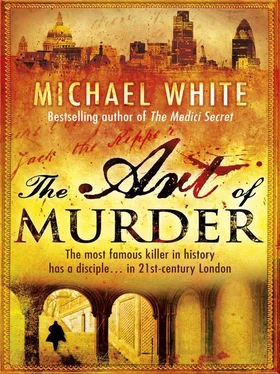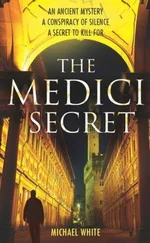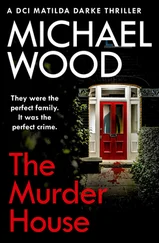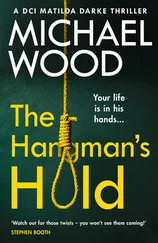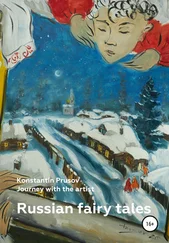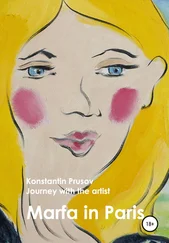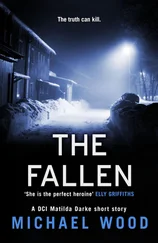Michael White - The Art of Murder
Здесь есть возможность читать онлайн «Michael White - The Art of Murder» весь текст электронной книги совершенно бесплатно (целиком полную версию без сокращений). В некоторых случаях можно слушать аудио, скачать через торрент в формате fb2 и присутствует краткое содержание. Жанр: Триллер, на английском языке. Описание произведения, (предисловие) а так же отзывы посетителей доступны на портале библиотеки ЛибКат.
- Название:The Art of Murder
- Автор:
- Жанр:
- Год:неизвестен
- ISBN:нет данных
- Рейтинг книги:3 / 5. Голосов: 1
-
Избранное:Добавить в избранное
- Отзывы:
-
Ваша оценка:
- 60
- 1
- 2
- 3
- 4
- 5
The Art of Murder: краткое содержание, описание и аннотация
Предлагаем к чтению аннотацию, описание, краткое содержание или предисловие (зависит от того, что написал сам автор книги «The Art of Murder»). Если вы не нашли необходимую информацию о книге — напишите в комментариях, мы постараемся отыскать её.
The Art of Murder — читать онлайн бесплатно полную книгу (весь текст) целиком
Ниже представлен текст книги, разбитый по страницам. Система сохранения места последней прочитанной страницы, позволяет с удобством читать онлайн бесплатно книгу «The Art of Murder», без необходимости каждый раз заново искать на чём Вы остановились. Поставьте закладку, и сможете в любой момент перейти на страницу, на которой закончили чтение.
Интервал:
Закладка:
Needless to say, these were not the pictures Dr Farmer saw. By the time I was sixteen, I had quite a decent portfolio of conventional pieces, and I had entered a landscape in a school art competition. When I won the prize, it seemed to be the first time anyone at school even noticed I was there. Before then, I had been little more than a shadow. Even Father took some notice when he heard of my success. Until then, he had not shown the slightest interest in my efforts but merely scoffed at the very idea his son should be interested in something so meretricious as art.
As a consequence, my father was quite bemused when Dr Farmer wrote to him inviting us to meet him. We dutifully went along to tea at the head-master’s cottage not far from the school, and when the good doctor explained to my father that he thought I was the most promising young artist he had ever seen, and that he believed I had a chance of a scholarship to study Fine Art at Oxford, Father was struck dumb.
He himself was not in the least bit academic, but he held Dr Farmer in high regard. Farmer had been an Oxford man himself and had once been something of an ambitious young fellow. Sadly for him, he had been wounded in the Crimea and never regained his health. He came from a wealthy family with connections who had secured him a teaching post in Hemel Hempstead, and when the former headmaster, Mr Bathurst, had died back in the late sixties, the good doctor had succeeded him in the post. And I’m grateful he did or else I might never have achieved the wonders for which I am now infamous.
On my first view of it, Oxford was shrouded in rain. The carriage taking me from the railway station rattled over cobbles and splashed through muddy puddles swamping Botley Road. It travelled past Northgate, on to Turl Street, and pulled up outside my new home, Exeter College. I was in reflective mood, paying little heed to my surroundings. It was only the next morning when bright sunshine lit up my meagre room that I felt I had actually arrived.
My dear lady, to whom I have promised to tell only the truth and only the relevant details of my tale, I will not bore you with the minutiae of my introduction to university life. We have all heard such mundanities before, have we not? Let us not waste time, but instead move straight on to the meat of the story. If you’ll excuse the pun.
Since my earliest childhood, I had, as you know, led a solitary existence, and so being thrust suddenly into a community like the University came as something of a shock. I quickly realised that I could spend my three years there in one of two ways. I could remain isolated, a misanthrope, or I could make a performance of it. The first path was more in keeping with my true nature and was seductive to me, but I also knew that I would gain far more from the experience of being a student at Exeter College, Oxford, if I … how should I put it? … partook fully of it.
I found I was rather a good actor — something of a natural mimic, in fact. I learned to disguise my voice and adopt different personae. I experimented with sartorial styling, facial hair, dyes and postures. I actually enjoyed it. And, I have to say, I’m quite a handsome fellow. I have fashionably long hair which is dark blond. I have a strong, intelligent face and large blue eyes. My lips are perhaps my least attractive feature, they are slightly too thin, but I have a manly chin, a powerful neck and broad shoulders. I’m several inches above average height, and of muscular build. But, more important than my physical appearance, I succeeded utterly in taking on the role of someone devoid of any anomalies of character, which meant I was readily able to make friends with others of my own age. I knew these were not real friendships, these people were mere stage props to me. Some may even have been fellow thespians — who could tell?
One such associate was Winston Merryfield, a medical student at Lincoln College. I can’t honestly remember how I first met the man, and really it does not matter. I liked the sharpness of his mind. He was something of an old-fashioned intellectual type, always reading weighty German novels in the original language and extolling the virtues of his favourite composers. I hate music, always have done, and Merryfield’s insistence that I attend the concerts he so loved tested my acting skills to the limit. But I thought from the off that young Winston would be a useful person to know, so with him I made a special effort.
One of the things I learned early in my university career was that there is a very important link between art and medicine. This is a fact many people ignore. As a student of Fine Art I was taught the rudiments of anatomy in the belief that it would facilitate a more realistic rendering of the human and animal form. That is an important area of expertise for the artist. Indeed, the Renaissance painter Leonardo da Vinci wrote about it. But the teaching of anatomy for painters is, well, let us say, less than comprehensive. And, as you know of me already, dear lady, I have always been inquisitive when it comes to bodies, dead or alive.
Merryfield was delighted when he learned that I was happy for him to bore me with his intellectual posturing, and even more so when I told him one evening, after a particularly tiresome performance of a plinky-plonky Mozart concerto at the Sheldonian, that I wanted to know more about human anatomy than I could gain from my own courses of study.
‘My dear Sandler,’ he replied with characteristic enthusiasm, ‘that really is a very easy matter to resolve.’
‘What do you mean exactly?’ I replied, leading him on.
‘Are you tired?’
‘No.’
‘Well then, why waste a moment? Come with me.’
We were walking along Broad Street but he turned us both round by gripping my shoulder and spinning on his heel. ‘Our lab is not far, just past Wadham on Parks Road. There’s always someone working late.’
And so I saw my second dead body. As a third-year student, Merryfield had his own key to the laboratory. He was right, there were two other students working there still. The place was freezing. It was a cold November night, but I surmised the place was kept cool by some clever artificial means.
The cadaver Merryfield showed me was that of an old man. He was kept packed in ice in a steel cabinet. Merryfield opened the door to the unit and slid the body out on a narrow tray. I glanced down at the forlorn figure on its metal bier. His skin was yellow and as wrinkled as a dried prune. ‘He was seventy-seven when he died,’ Merryfield commented.
‘But how do you obtain your specimens?’ I asked. ‘Is there still a trade in grave-robbing?’
Merryfield looked greatly offended. ‘No, there is not, Sandler!’ he snapped. ‘We are morally minded students, just like you. The dead bodies we use are all officially accounted for and their passage from the workhouse, the prisons and the hospitals is documented in triplicate.’
‘I’m sorry, I …’
‘Burke and Hare went out of business a long time ago,’ he added.
I held my hands up and made a very fine show of trying to pacify my ‘friend’. The fact was, of course, that I was greatly amused by his reaction, though I could not let him know that. ‘So how on earth do you preserve the corpses?’ I said, quickly putting Merryfield back into a position where he could do his best to impress.
‘Well, that’s actually a very good question,’ he said, his ill temper evaporating. ‘It’s not at all easy. Have you heard of refrigeration?’
‘Yes.’
‘That’s what we do here. We have a gas generator at the back of the building which keeps the room cool. You must have noticed?’
‘Yes, I did,’ I retorted with a shiver.
‘The body is embalmed with a special chemical called glutaraldehyde and packed in ice in the box there.’ He pointed to the dead man’s steel tomb. ‘The glutaraldehyde has turned Franklin’s skin yellow.’
Читать дальшеИнтервал:
Закладка:
Похожие книги на «The Art of Murder»
Представляем Вашему вниманию похожие книги на «The Art of Murder» списком для выбора. Мы отобрали схожую по названию и смыслу литературу в надежде предоставить читателям больше вариантов отыскать новые, интересные, ещё непрочитанные произведения.
Обсуждение, отзывы о книге «The Art of Murder» и просто собственные мнения читателей. Оставьте ваши комментарии, напишите, что Вы думаете о произведении, его смысле или главных героях. Укажите что конкретно понравилось, а что нет, и почему Вы так считаете.
